December 11, 2014 •
NYC Campaign Finance Board Approves Rules Related to Text Message Contributions
In its December 11, 2014, meeting, the New York City Campaign Finance Board approved rules implementing Local Law 116 of 2013, which permits candidates receiving public matching funds to receive contributions via text message. The rules permit public funds to […]
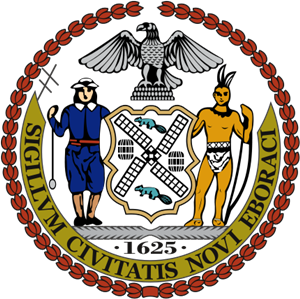 In its December 11, 2014, meeting, the New York City Campaign Finance Board approved rules implementing Local Law 116 of 2013, which permits candidates receiving public matching funds to receive contributions via text message.
In its December 11, 2014, meeting, the New York City Campaign Finance Board approved rules implementing Local Law 116 of 2013, which permits candidates receiving public matching funds to receive contributions via text message.
The rules permit public funds to match the text message contribution once those contributions are paid via the contributor’s phone bill. The rules further establish record keeping requirements for text message contributions and a process to certify the identity of the contributor.
The rules will take effect 30 days after final publication in The City Record.
November 17, 2014 •
NYC Campaign Finance Board Proposes Rules on Contributions by Text Message
The New York City Campaign Finance Board has proposed rules regulating political contributions by text message. The rules set forth the eligibility requirements for public funds matching of text message contributions, the process of record keeping requirements for such contributions, […]
 The New York City Campaign Finance Board has proposed rules regulating political contributions by text message. The rules set forth the eligibility requirements for public funds matching of text message contributions, the process of record keeping requirements for such contributions, and requirements of contributors to certify their identities when making text message contributions.
The New York City Campaign Finance Board has proposed rules regulating political contributions by text message. The rules set forth the eligibility requirements for public funds matching of text message contributions, the process of record keeping requirements for such contributions, and requirements of contributors to certify their identities when making text message contributions.
The rules are open for public comment until November 20, 2014. A public hearing is scheduled for Monday, November 24, 2014 at 10:00 a.m.
September 26, 2014 •
Online Ethics Training for Lobbyists Now Available from NY’s JCOPE
The Joint Commission on Public Ethics has developed online ethics training, as required by the New York Legislative Law. Enrollment in the online training is available here. All registered lobbyists, including principals, must complete the online training. All lobbyists registered […]
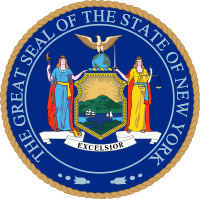 The Joint Commission on Public Ethics has developed online ethics training, as required by the New York Legislative Law. Enrollment in the online training is available here.
The Joint Commission on Public Ethics has developed online ethics training, as required by the New York Legislative Law. Enrollment in the online training is available here.
All registered lobbyists, including principals, must complete the online training.
All lobbyists registered for both the 2011-2012 and 2013-2014 biennia must complete the online training by December 31, 2014. Beginning in 2015, all registered lobbyists will be required to complete the training once every three years.
September 12, 2014 •
Suffolk County, NY Considers Amending Its Lobbying Law
The Suffolk County Legislature introduced an ordinance amending the county’s lobbying law. Resolution No. 1658-2014 expands the definition of lobbying to include attempts to influence county agencies with respect to the procurement of goods, services, or public works. The ordinance […]
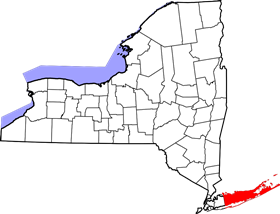 The Suffolk County Legislature introduced an ordinance amending the county’s lobbying law. Resolution No. 1658-2014 expands the definition of lobbying to include attempts to influence county agencies with respect to the procurement of goods, services, or public works. The ordinance also changes the overseeing body of lobbyist filings from the Clerk of the Legislature to the Board of Ethics.
The Suffolk County Legislature introduced an ordinance amending the county’s lobbying law. Resolution No. 1658-2014 expands the definition of lobbying to include attempts to influence county agencies with respect to the procurement of goods, services, or public works. The ordinance also changes the overseeing body of lobbyist filings from the Clerk of the Legislature to the Board of Ethics.
The ordinance would further require the Board to develop a protocol to review sources of information that may assist the Board in identifying non-complying lobbyists. This provision is similar to a recent change made to New York City’s lobbying law aimed at identifying non-complying lobbyists.
If passed, the ordinance will take effect January 1, 2015.
August 29, 2014 •
NYT Declines to Endorse Cuomo in Primary
The New York Times Editorial Board has declined to endorse Gov. Andrew Cuomo in the New York gubernatorial primary election. Citing Cuomo’s failure to eliminate political corruption in Albany and throughout the state, despite campaign promises to do so, the […]
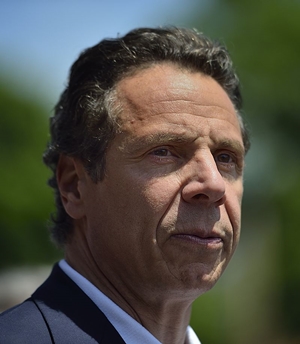 The New York Times Editorial Board has declined to endorse Gov. Andrew Cuomo in the New York gubernatorial primary election. Citing Cuomo’s failure to eliminate political corruption in Albany and throughout the state, despite campaign promises to do so, the editorial board wrote, “The state government remains as subservient to big money as ever.”
The New York Times Editorial Board has declined to endorse Gov. Andrew Cuomo in the New York gubernatorial primary election. Citing Cuomo’s failure to eliminate political corruption in Albany and throughout the state, despite campaign promises to do so, the editorial board wrote, “The state government remains as subservient to big money as ever.”
The board further declined to endorse any candidate in the Democratic primary, because the other candidate, Fordham law professor Zephyr Teachout, “does not have the breadth of interests and experience needed to govern a big and diverse state.”
Cuomo is heavily favored in the primary as he is the incumbent and has amassed vastly greater resources than his opponent. The New York state primary election will take place on September 9, 2014.
Photo of Gov. Andrew Cuomo by Diana Robinson on Wikimedia Commons.
The New York City Council is considering a measure increasing disclosure requirements for those making independent expenditures to influence city elections. Introduction 148 will require individuals and entities making independent expenditures totaling $5,000 or more to disclose the owners, partners, […]
 The New York City Council is considering a measure increasing disclosure requirements for those making independent expenditures to influence city elections. Introduction 148 will require individuals and entities making independent expenditures totaling $5,000 or more to disclose the owners, partners, board members, or their equivalents of any entity reporting the expenditure. The measure further requires an individual or entity who transfers $1,000 or more to another individual or entity for the purpose of such other individual or entity making independent expenditures to report the transfer of money as if the transferor has directly made the independent expenditure.
The New York City Council is considering a measure increasing disclosure requirements for those making independent expenditures to influence city elections. Introduction 148 will require individuals and entities making independent expenditures totaling $5,000 or more to disclose the owners, partners, board members, or their equivalents of any entity reporting the expenditure. The measure further requires an individual or entity who transfers $1,000 or more to another individual or entity for the purpose of such other individual or entity making independent expenditures to report the transfer of money as if the transferor has directly made the independent expenditure.
Another provision of the measure requires individuals or entities to disclose detailed information on any electioneering communications, such as the top five donors to the entity responsible for the communication, and names of the owner and CEO of the entity.
Amy Loprest, the executive director of the New York City Campaign Finance Board, applauded the new disclosure requirements, saying, “This legislation will give voters a more complete view of who is paying for the campaign ads that fill their mailboxes and airwaves.”
If passed, Introduction 148 will take effect one year after its enactment.
Under New York ethics regulations, a registered lobbyist, under certain circumstances, must report the names of each source of funding of more than $5,000 from a single source used to fund the lobbying activity reported and the amounts received from […]
 Under New York ethics regulations, a registered lobbyist, under certain circumstances, must report the names of each source of funding of more than $5,000 from a single source used to fund the lobbying activity reported and the amounts received from each identified source. The Joint Commission on Public Ethics (JCOPE) can grant an exemption to this disclosure requirement if such disclosure would put contributors at risk of harm, threats, harassment, or reprisals.
Under New York ethics regulations, a registered lobbyist, under certain circumstances, must report the names of each source of funding of more than $5,000 from a single source used to fund the lobbying activity reported and the amounts received from each identified source. The Joint Commission on Public Ethics (JCOPE) can grant an exemption to this disclosure requirement if such disclosure would put contributors at risk of harm, threats, harassment, or reprisals.
Recently, the JCOPE denied an exemption to Family Planning Advocates, the New York Women’s Equality Coalition, New Yorkers for Constitutional Freedoms, and the New York Civil Liberties Union. The groups appealed the ruling to an independent judicial hearing officer who must determine whether the denial of an exemption was clearly erroneous in view of the evidence of record.
On July 11, 2014, George C. Pratt, the presiding judicial hearing officer, reversed the JCOPE’s denial of the exemption, finding the commission’s decision to be clearly erroneous in light of the specific evidence presented. In his decision, Pratt stated the advocacy groups had experienced several incidents over a period of years showing a pattern of threats and manifestations of public hostility. As a result of Pratt’s ruling, all four groups will be granted an exemption from the donor disclosure requirement.
June 25, 2014 •
Rangel Likely Winner in NY’s 13th District
Rep. Charlie Rangel has likely defeated challenger state Sen. Adriano Espaillat in a hotly contested Democratic primary for New York’s 13th Congressional District. The district covers parts of New York City, including Harlem and the Bronx. While some news sources […]
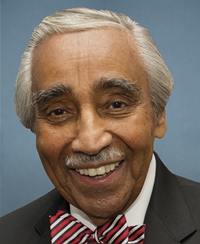 Rep. Charlie Rangel has likely defeated challenger state Sen. Adriano Espaillat in a hotly contested Democratic primary for New York’s 13th Congressional District. The district covers parts of New York City, including Harlem and the Bronx.
Rep. Charlie Rangel has likely defeated challenger state Sen. Adriano Espaillat in a hotly contested Democratic primary for New York’s 13th Congressional District. The district covers parts of New York City, including Harlem and the Bronx.
While some news sources report the race is too close to call, with 100 percent of the precincts reporting, Rangel leads by 1,828 votes. Espaillat has not yet conceded the race because absentee and provisional ballots still remain uncounted. There are 980 valid absentee ballots and an unknown number of provisional ballots, all of which will be counted on July 2, 2014.
There is no Republican challenger for the 13th District seat so a win in the primary guarantees the victor a seat in Congress.
Rangel has served 22 terms in Congress and was once the chairman of the Ways and Means Committee. The veteran congressman has defeated Espaillat once before in the 2012 Democratic primary, winning by less than 1,000 votes.
June 24, 2014 •
NY Establishes Ethics Tip Line
The Joint Commission on Public Ethics has created a tip line and website allowing the public to report alleged ethical violations by state officials and lobbyists, including improper gifts, conflicts of interest, nepotism, abuse of power, and sexual harassment. To […]
 The Joint Commission on Public Ethics has created a tip line and website allowing the public to report alleged ethical violations by state officials and lobbyists, including improper gifts, conflicts of interest, nepotism, abuse of power, and sexual harassment.
The Joint Commission on Public Ethics has created a tip line and website allowing the public to report alleged ethical violations by state officials and lobbyists, including improper gifts, conflicts of interest, nepotism, abuse of power, and sexual harassment.
To report violations, call 1-800-87-ETHICS or visit http://reportmisconduct.ny.gov.
The New York State Board of Elections will no longer enforce the $150,000 yearly aggregate limit on political contributions from individuals. In its May 2014 meeting, the board determined the limit can no longer be enforced in light of recent […]
 The New York State Board of Elections will no longer enforce the $150,000 yearly aggregate limit on political contributions from individuals. In its May 2014 meeting, the board determined the limit can no longer be enforced in light of recent federal court decisions.
The New York State Board of Elections will no longer enforce the $150,000 yearly aggregate limit on political contributions from individuals. In its May 2014 meeting, the board determined the limit can no longer be enforced in light of recent federal court decisions.
New York campaign finance law imposes a similar aggregate limit of $5,000 on a corporation’s yearly contributions. The board made no ruling with regard to the corporate limit; however that limit is currently being challenged in federal court.
May 16, 2014 •
New York City Amends Lobbying Law, Effective May 16, 2014
In late 2013, the New York City Council passed Local Law 129 of 2013, making many changes to current lobbying law in the city and surrounding boroughs. Many of the new law’s provisions are effective today, May 16, 2014. The […]
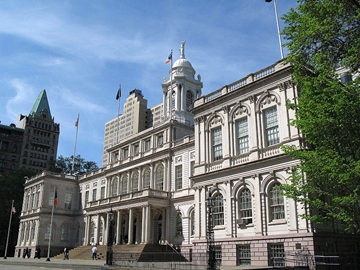
In late 2013, the New York City Council passed Local Law 129 of 2013, making many changes to current lobbying law in the city and surrounding boroughs. Many of the new law’s provisions are effective today, May 16, 2014.
The definition of lobbying is revised to include attempts to influence legislation not yet introduced, legislation at the state and federal level, and mayoral executive vetoes. It is also revised to include attempts to influence the agenda or calendaring of a meeting of a board or commission. The revised definition excludes architects and engineers as lobbyists under certain parameters, and the law now imposes a $10,000 registration threshold for such individuals should they undertake lobbying activities. The registration threshold for all other lobbyists is $5,000.
Local Law 129 of 2013 requires more detailed disclosure on the statement of registration and on periodic reports. The new law further establishes a first-of-its-kind amnesty program, allowing noncomplying lobbyists to enroll in the program and be exonerated of late filing fees and applicable civil and criminal penalties dating back to December 10, 2006.
Provisions taking effect in the future include a mandatory lobbyist training program and the practice of the city clerk reviewing sources of information such as state lobbyist filings and the Doing Business Database to identify lobbyists required to register who have not done so.
Photo of the New York City Hall courtesy of Momos on Wikimedia Commons.
The New York City Council has introduced legislation imposing increased independent expenditure disclosure requirements. Introduction No. 148-A requires any electioneering communications to include the phrase “paid for by,” whether typed or spoken, followed by the identity of the top five […]

The New York City Council has introduced legislation imposing increased independent expenditure disclosure requirements. Introduction No. 148-A requires any electioneering communications to include the phrase “paid for by,” whether typed or spoken, followed by the identity of the top five donors to the organization sponsoring the communication.
Campaign Finance Board Executive Director Amy Loprest testified before the council on April 25, 2014, supporting the legislation. In support of the bill, Loprest stated, “Providing voters with clear information about who is responsible for these campaign messages will reduce the likelihood of confusion among voters.”
Photo of the New York City Hall by Momos on Wikipedia.
April 28, 2014 •
Federal Court in NY Strikes Down Aggregate Limits
The U.S. District Court for the Southern District of New York struck down a campaign finance law limiting contributions to super PACs. Sections 14-114(8) and 14-126 of the New York Election Law impose an annual aggregate contribution limit of $150,000 […]
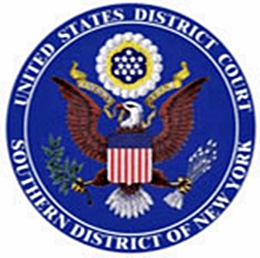
The U.S. District Court for the Southern District of New York struck down a campaign finance law limiting contributions to super PACs. Sections 14-114(8) and 14-126 of the New York Election Law impose an annual aggregate contribution limit of $150,000 per contributor. Plaintiff New York Progress and Protection PAC challenged the aggregate contribution limits on First Amendment grounds.
The committee, although ruled by the court to be an independent expenditure committee, was formed to support the candidacy of Republican Joseph Lhota, the unsuccessful New York City mayoral candidate in 2013.
Judge Paul A. Crotty, citing the precedent established in Citizens United and McCutcheon, enjoined New York’s aggregate contribution limit as applied to independent expenditures.
January 29, 2014 •
NY’s JCOPE Denies Donor Disclosure Exemption for Family Planning Advocates, Others
The Joint Commission on Public Ethics (JCOPE) rejected a request made by several activist groups to grant an exemption from the donor disclosure requirement provided by New York law. Under the ethics law, a registered lobbyist, under certain circumstances, must […]

The Joint Commission on Public Ethics (JCOPE) rejected a request made by several activist groups to grant an exemption from the donor disclosure requirement provided by New York law. Under the ethics law, a registered lobbyist, under certain circumstances, must report the names of each source of funding over $5,000 from a single source used to fund the lobbying activity reported and the amounts received from each identified source.
Under the same law, the JCOPE can grant an exemption to the donor disclosure requirement if that disclosure would put contributors at risk. The party requesting the exemption must demonstrate that the disclosure of their donors would cause harm, threats, harassment, or reprisals.
The JCOPE denied the exemption requested by Family Planning Advocates, the New York Women’s Equality Coalition, New Yorkers for Constitutional Freedoms and the New York Civil Liberties Union. The groups can appeal the decision to an independent judicial hearing officer within 15 days of the JCOPE’s written ruling, which has not yet been completed.
At the same meeting, the commission also limited one exemption that it had already granted to NARAL Pro-Choice NY by scheduling the donor disclosure exemption to expire with the group’s next filing.
State and Federal Communications, Inc. provides research and consulting services for government relations professionals on lobbying laws, procurement lobbying laws, political contribution laws in the United States and Canada. Learn more by visiting stateandfed.com.


